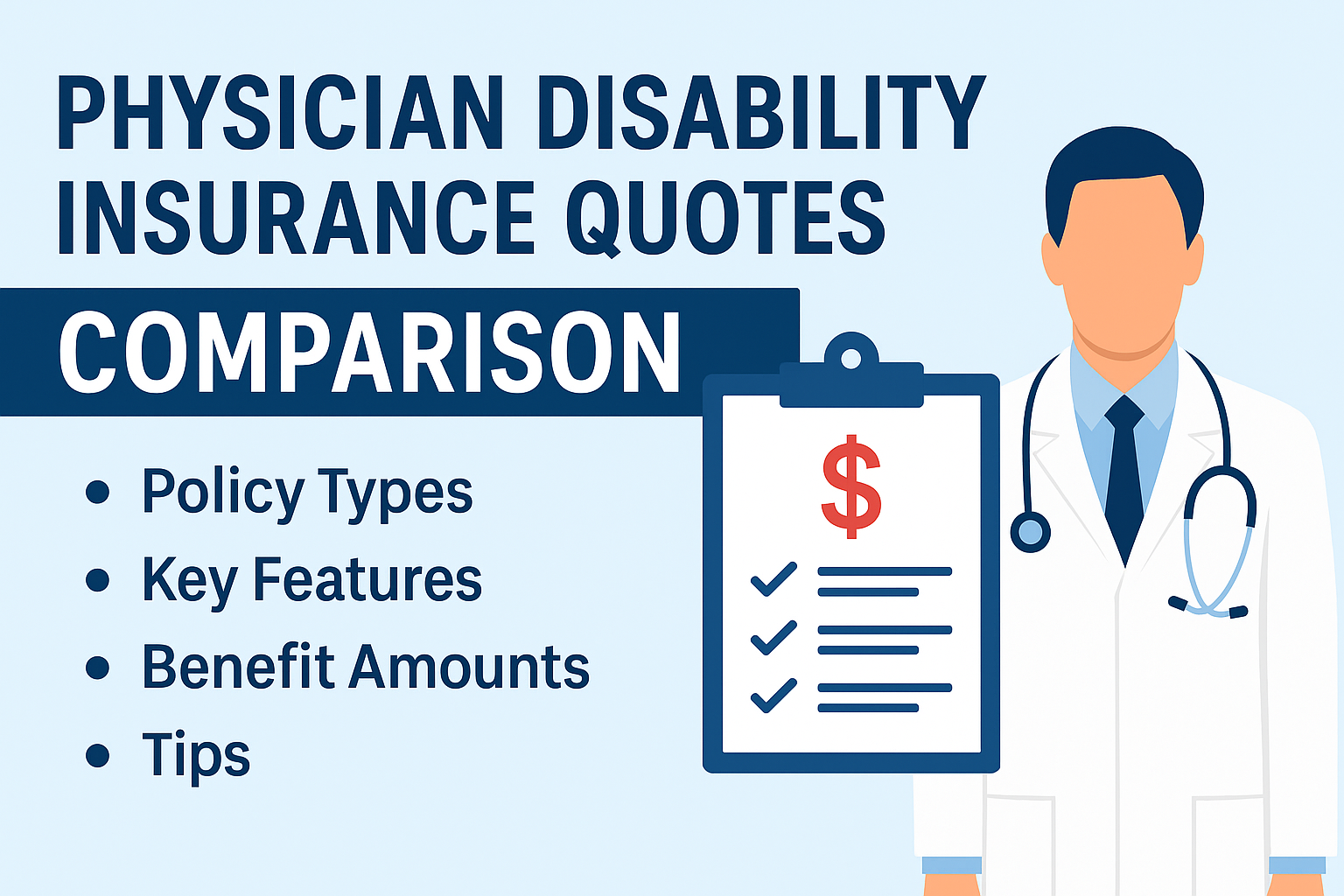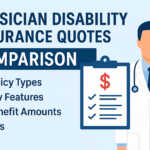Physician Disability Insurance Quotes Comparison (2025 Guide)
For physicians, protecting your income is just as important as building it. One of the smartest financial decisions a doctor can make is purchasing disability insurance. With rising medical school debt and years of education, a sudden illness or injury could drastically affect your earning potential. That’s why comparing disability insurance quotes for physicians is crucial—especially in 2025 as policy terms and rates are evolving.
Why Do Physicians Need Disability Insurance?
Physicians rely heavily on their ability to work. If that ability is compromised, so is their income. Disability insurance ensures financial stability by replacing a portion of your salary if you’re unable to work due to an illness or injury.
Key Reasons:
- High earning potential means high risk of financial loss without coverage.
- Medical training doesn’t protect against disability or injury.
- Student loan obligations remain, even if income stops.
- Own-occupation coverage is specially tailored for doctors.
Types of Disability Insurance for Physicians
When comparing quotes, it’s important to know which type of disability policy you’re evaluating:
- Short-Term Disability (STD): Covers disabilities lasting a few weeks to several months. Less expensive, but not ideal for long-term situations.
- Long-Term Disability (LTD): Covers disabilities lasting more than six months. This is the most critical type for physicians.
- Own-Occupation Policy: Pays out if you can’t perform your specific medical specialty, even if you work in another job.
How to Compare Disability Insurance Quotes in 2025
Here are key factors to compare when reviewing different physician disability insurance quotes:
1. Policy Definitions
Ensure the policy includes a true “own-occupation” definition of disability. Some companies offer a modified or transitional definition, which reduces benefits if you work in a different field.
2. Benefit Period
Look for policies that offer benefits until age 65 or even age 70. Avoid policies that end benefits after 5 or 10 years.
3. Monthly Benefit Amount
This is the actual amount you’d receive each month if you become disabled. Make sure it covers your monthly obligations (mortgage, loans, etc.).
4. Elimination Period
This is the waiting period before benefits begin. A 90-day period is standard, but it affects the premium.
5. Riders & Add-ons
Consider adding features such as:
- Future Increase Option (FIO): Allows you to increase coverage as your income grows without additional medical exams.
- Cost of Living Adjustment (COLA): Increases your benefit annually based on inflation.
- Residual Disability Rider: Pays partial benefits if you can still work part-time.
Top Companies Offering Physician Disability Insurance (2025)
Based on current quote data and physician reviews, here are some leading providers:
- Guardian Life – Known for true own-occupation policies.
- MassMutual – Offers flexible riders and strong financial ratings.
- Principal Financial – Offers solid base policies with multiple discount programs.
- Ameritas – Competitive rates for residents and young physicians.
Tips to Get the Best Quote
- Get coverage early in residency to lock in lower premiums.
- Compare quotes through an independent broker who specializes in physician policies.
- Ask about discounts for medical associations or group plans.
- Review exclusions and policy renewal terms carefully.
“Physician disability insurance isn’t just a policy—it’s a financial safety net that protects everything you’ve worked so hard to build.”
Conclusion
Disability insurance may seem like just another cost, but for physicians, it’s an essential layer of protection. As policies evolve in 2025, comparing quotes from multiple providers will help you find the right fit for your specialty, career stage, and income level. Start early, ask the right questions, and choose a policy that ensures long-term peace of mind.


